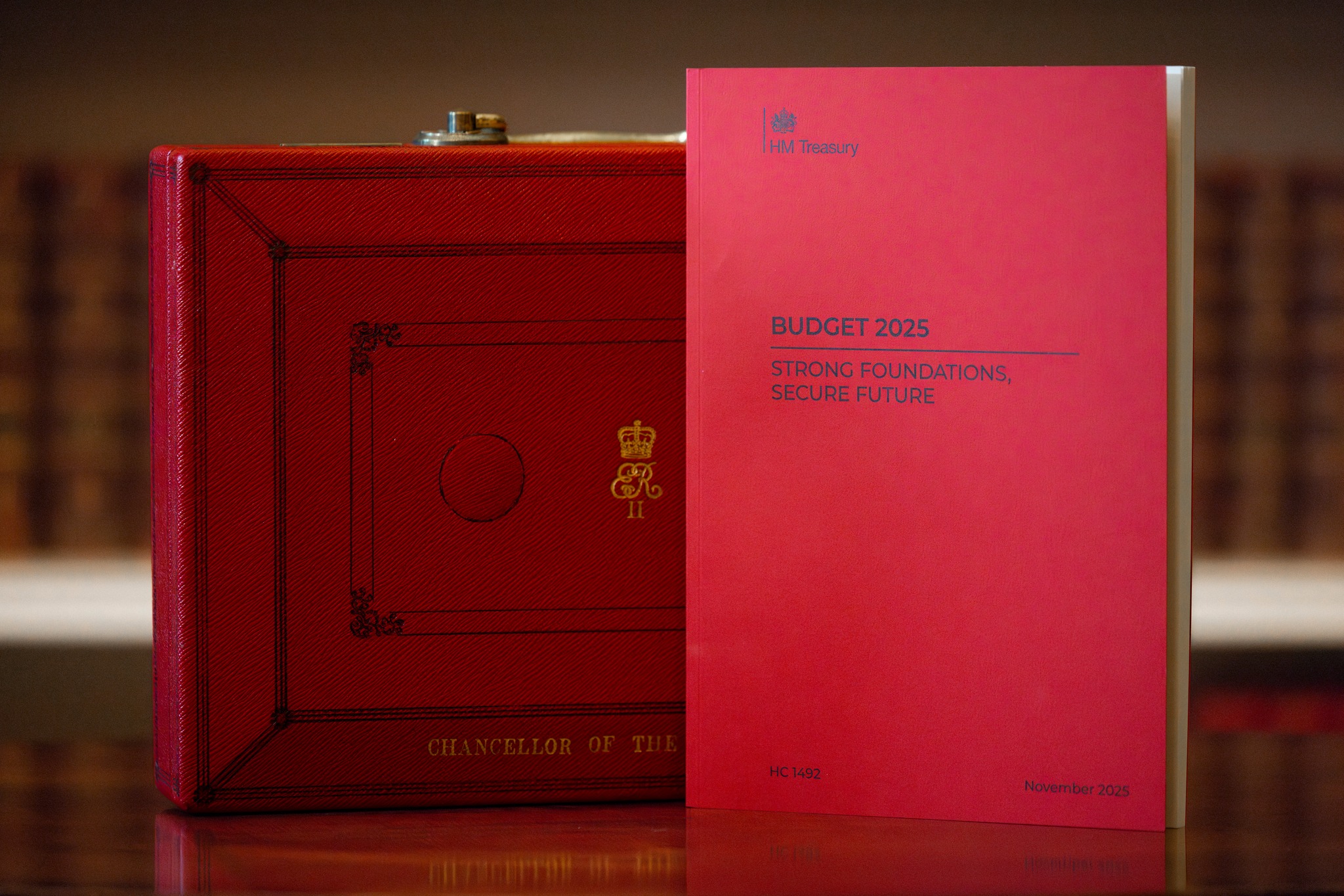
What is research & development and how can it help UK businesses?

We'd love to chat about your funding journey and how we can support you
What is R&D?
Research and development (R&D) is the creation of new ways of doing things – new products, systems, processes; it is the search for new knowledge, improving on the old. For businesses, R&D involves taking on risk, including through expense, reputation or opportunity cost. By its very nature, you must be uncertain of the outcome – it could fail, or not turn out quite how you expected. Innovative businesses need to perform R&D to develop new services, products or processes, or improve existing ones. It is normally one of the first stages of such projects, representing a hive of activity at the beginning, and the R&D may continue all the way through as your project progresses.
This reduced tax rate applies not only to profits directly derived from the patented item but also to sales of products that incorporate the patented technology, licensing royalties, and even compensation for infringement.

What sectors adopt R&D?
HMRC’s definition of R&D is broad so that it does not, by default, exclude any sector. As long as you are a limited company, meet the definition relating to a scientific/technological advance and uncertainty, and have qualifying expenses, then you may qualify for R&D tax relief. However, there are certain sectors that HMRC would consider unlikely to be able to make an R&D claim:
To provide you with examples from what you may think of as non-traditional sectors for R&D, consider the following:
The difference between basic and applied research
When considering research and development, one way of breaking it down is to think in terms of two fundamental types of R&D: basic R&D and applied R&D.
Basic research could be seen as the first stage, where you are theorising, developing new approaches and coming up with big ideas. For a business, this is helpful at a strategic level, gaining new knowledge that can inform decision making and which direction you will take the company in.
Applied research takes the ideas of basic research (or perhaps less structured ideas from other sources) and uses them to devise practical applications from the existing knowledge you have. At this level, you are using research to find technological or scientific solutions to solve specific business problems – such as enhancing an existing product or making a process more efficient.
Both basic and applied research feed into development, which could be a product, service or process. There will be experimentation including activities like CAD, prototyping, testing and iterative improvement.

What is research and development in business?
R&D stands for research and development, and its definition for tax purposes is predicated on overcoming technological uncertainty in order to make an overall advance in your particular field. This can include projects for clients and projects that were not ultimately successful. But you have to demonstrate that your project’s aims and outcomes were not readily deducible at the outset.
R&D is therefore the activity you undertake when you are seeking to make an advance in your field using science or technology. Perhaps you are pushing the boundaries of knowledge and solutions in your sector, perhaps you are making improvements to what already exists, or seeking to create something new.
As we have said, the legislation for R&D tax credits is purposefully broad so as to capture innovation in businesses of all sizes and sectors. This innovation can take place when you:
Like many businesses who are improving their awareness of the R&D tax incentives, you may recognise that you are conducting R&D in your normal day-to-day activity, but what does this mean in a tax context?
While HMRC’s definition of R&D is broad, there are some notable exclusions.
At a high level, HMRC defines research and development for tax purposes as activity which is attempting to resolve scientific or technological uncertainty. This means that it does not matter how big or small your company is, or what sector you are in, there is potential for you to be conducting research and development in this sense.
One strong indicator that you may be carrying out R&D for tax purposes is if you are unsure of the outcome of your project or whether it is even possible. Unsuccessful R&D endeavours can still count as R&D for tax purposes and can be rewarded with tax relief.
R&D tax relief is provided through the corporation tax system, so you have to be a limited company for your R&D to count for tax purposes. Social sciences and market research are specifically excluded from the R&D tax credit system, so they can still be R&D, but not R&D for tax purposes.
Where R&D qualifies for R&D tax credits, this tax relief can provide an important source of funding to your business. It will only cover a proportion of your R&D expenditure, but it is a welcome and valuable addition.

How does research and development help UK businesses?
The benefits of conducting research and development and receiving R&D tax relief can be substantial for your business.
It is up to you what you do with money received from R&D tax credits, but by reinvesting it in further R&D – through hiring a specialist, or acquiring a new piece of equipment, for example – you can even achieve a kind of compound growth to your R&D programme, by each year building on and adding to what’s been done before.

R&D strategy: Approaches to research and development
There is no set definition of what an R&D process or project looks like in a business. You might even be carrying out R&D unknowingly when you start exploring new possibilities.
An R&D cycle may look something like this:
When you come to look at your R&D project for tax purposes, you will need clarity to be able to identify where the limitations in the current state of knowledge were and the uncertainty as to how you (or another expert working in your field) would make a scientific or technological advance to overcome the limitation.
In the course of a year, you can have one or more R&D projects which run concurrently or one after another.
Examples of R&D activities beyond product development
Whilst it is tempting to think about R&D purely in terms of product development, in reality it can have much broader application than this. From data analysis to market research (market research is excluded from claiming R&D tax relief), new service design to internal systems, R&D can take many forms.
Examples could include:
Challenges and risks associated with R&D
As stated earlier, true R&D will always come with a level of risk. This is one of the main reasons why the government chooses to provide tax incentives – to encourage the risk/reward trade off.
Some of the main areas of risk to consider include: the potential for high expenditure with no guarantee of a return, possible health and safety risk depending on your industry, opportunity cost of other initiatives you could have pursued and even things like reputational risk should new products not be a success.
There will also be challenges, such as ensuring you have staff with sufficient skill levels, procurement of equipment and space with which to conduct your R&D and keeping on top of your business-as-usual operations.
As the rest of this article outlines though, the benefits of having an R&D mindset are significant and will often outweigh the risks. But it is good to approach the topic fully informed.
Ethical considerations in R&D
In this day and age, we would not be comprehensively covering the topic of R&D if we did not highlight the need to make ethical considerations when deciding on projects.
Ethical considerations in R&D can touch upon many areas, from philosophy to operational practice. What is the environmental impact of our R&D or our potential new products? Is this good for society? Are we using data responsibly? Are there any safety issues for our staff?
Because R&D can change the world we live in, it is important to assess that the change will be for good.
HMRC enquiries are becoming increasingly common, so you’ll need to make sure your claim is well-evidenced and accurate upon submission.

What is R&D tax relief?
R&D tax relief is the government incentive for rewarding innovative businesses that take a financial risk with projects whose aims are uncertain (as described above). It is often referred to as R&D tax credits.
Following the implementation of legislative change in 2024, most companies large or small will claim under a scheme called RDEC which yields an effective benefit of up to 16.2% depending on your tax position. For loss-making, R&D intensive SMEs, there is a more generous scheme which provides an effective benefit of up to 27%.
R&D tax relief is claimed retrospectively and you can look back over two accounting periods to claim. It is calculated based upon the qualifying costs within qualifying projects. There are many types of qualifying costs, including expenditure such as staffing and utilities costs attributable to R&D projects. Your own R&D projects or subcontracted R&D projects can both qualify. You can read all about R&D tax relief here.
Depending on what scheme you use, your tax position and other factors, you may receive the financial benefit as a reduction in your corporation tax bill or as a cash credit. Either way, it is a major funding source for eligible businesses.
For example, the average cash boost which we are able to generate for our clients per annual claim is £73K.
Why not take our eligibility test to see if R&D you are already doing could qualify you for R&D tax relief?
How should we carry out R&D to qualify for R&D tax relief?
If you want to claim R&D tax relief, you will need to be prepared to demonstrate the qualifying activities and costs which are to be included in the claim.
Keeping R&D tax credit records
It would be best practice to keep clear records of expenditure as it is made, timesheets of staff involved, and the successes and failures of the project(s). You will also need to identify a technical expert in your business capable of defining the current limitations of knowledge and when advances were sought.
After you have been through the claim process once, all the above good practice becomes essential for the credibility of your future claims. On subsequent R&D tax credit claims, drawing on good quality records becomes even more important.
Why use a specialist R&D adviser to claim R&D tax relief?
Specialist R&D advisers play a key role in both optimising the value of a claim, and ensuring it is robustly prepared in line with best practice and the legislation. HMRC enquiries are becoming increasingly common, so you’ll need to make sure your claim is well-evidenced and accurate upon submission. Failure to support and substantiate your claims and associated costs can result in penalties from HMRC, and you should always check that your adviser will support you through an enquiry.
At Kene Partners, we know how to apply R&D tax relief rules to projects to ensure that all qualifying activity is included in a claim.
We also stay ahead of a changing R&D tax landscape. In 2023 and 2024 there have been a raft of changes to R&D tax relief and the way it is claimed. We ensure that all claims are prepared correctly in line with the latest legislation updates.
Explore our latest insights
Subscribe for R&D funding news









.svg)


